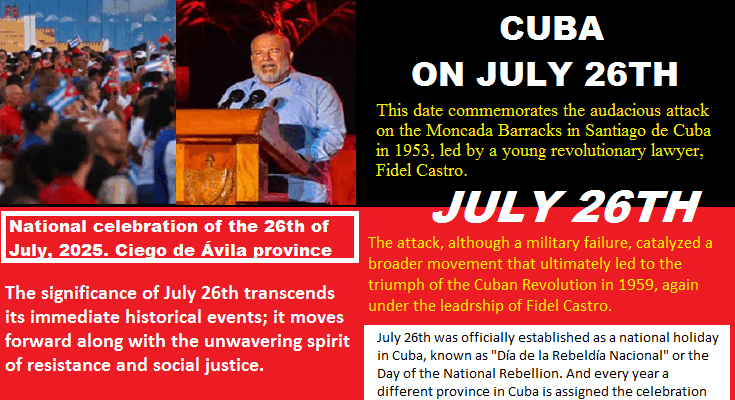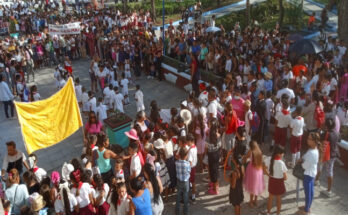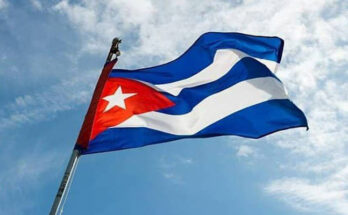July 26th holds profound historical and cultural significance for the Cuban people, marking the anniversary of a crucial event in the nation’s enduring struggle against oppressive regimes.
This date commemorates the audacious attack on the Moncada Barracks in Santiago de Cuba in 1953, an operation led by a young revolutionary lawyer, Fidel Castro, along with his dedicated followers. While the immediate military objective of the attack did not succeed, it ignited the Cuban Revolution and fundamentally transformed the political landscape of the nation.
The Moncada Barracks served as a potent symbol of the authoritarian regime of then-dictator Fulgencio Batista, who had seized power through a military coup in 1952. Fidel Castro and his followers aimed to incite a rebellion against Batista’s government, which was notorious for its corruption, repression, and blatant disregard for political freedoms. Although the attack ultimately failed, resulting in the arrest of numerous participants and the execution of several of them, it catalyzed a broader movement that ultimately led to the triumph of the Cuban Revolution in 1959.
The significance of July 26th transcends its immediate historical events; it embodies the unwavering spirit of resistance and the aspiration for social justice. Following the attack, Fidel Castro famously delivered his “History Will Absolve Me” speech during his trial, eloquently outlining the injustices perpetrated by the Batista regime and articulating his vision for a new Cuba founded on principles of equity, education, and healthcare.
This speech has since become an emblematic representation of the revolutionary ideology that fueled the Cuban Revolution, highlighting themes of dignity, empowerment, and national sovereignty.
In recognition of its importance, July 26th was officially established as a national holiday in Cuba, known as “Día de la Rebeldía Nacional” or the Day of the National Rebellion. And every year a different province in Cuba is assigned the celebration of the national ceremony in honor of the date.
In general, the day is celebrated with various festivities, including parades, cultural performances, and speeches by government officials, all symbolizing unity and a steadfast commitment to the ideals of the revolution. It serves as an annual reminder of the sacrifices made by those who fought for Cuba’s independence from colonial oppression and their subsequent struggles against neo-colonialism and imperialism.
Moreover, this date has also been employed as a platform to reflect on current socio-economic realities in Cuba. Celebrations often feature discussions surrounding the achievements of the revolution, such as notable advancements in education and healthcare, alongside dialogues on the alternatives necessary to overcome shortages exacerbated by the economic crisis and the enduring US blockade imposed on the island since 1962.
This illustrates the complexity of the Cuban identity, where pride in revolutionary achievements coexists with an urgent desire for continued progress and economic reform. As Cuba navigates its path forward, the lessons derived from this significant date will undoubtedly continue to shape the discourse surrounding governance, social equity, and the enduring safeguard of national sovereignty. The commemoration of July 26th thus honors the past while inspiring future generations to reflect on their roles in building a society that aligns with revolutionary ideals while embracing the complexities of modern life.




